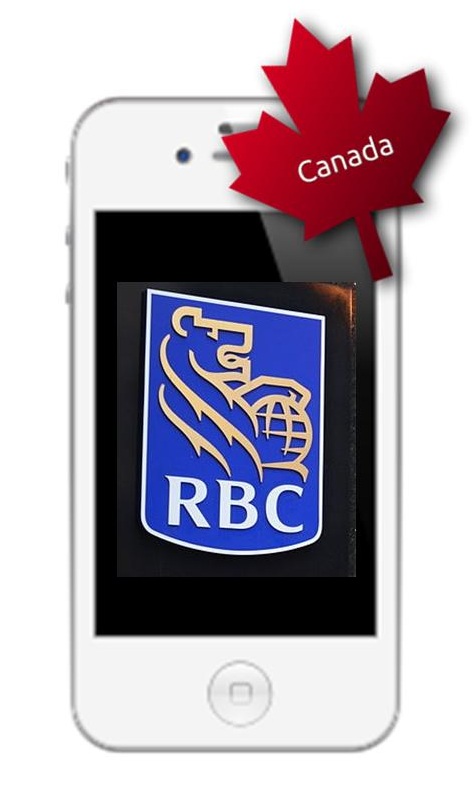The application from the Royal Bank of Canada now supports host card emulation to broaden usage capabilities.
The mobile payments app from the Royal Bank of Canada (RBC) has now announced the addition of support for host card emulation (HCE), in a move that it says will give Canadians the ability to use Android based smartphones to complete purchase transactions without having to worry about having the right type of SIM card or being on the correct network.
The bank has built on its existing platform, called the RBC Secure Cloud to encourage smartphone payments use.
According to RBC, this change to its app is “allowing Canadians to pay with most Android mobile phones without worrying about being on the right mobile network or having the right SIM card.” The service will give customers with virtually any Android smartphone that is NFC technology enabled the opportunity to make mobile payments at merchants equipped with Interact Flash contactless POS terminals. The smartphones will function as an alternative to using a traditional debit card.
This new mobile payments technology will be piloted over the winter months by employees of RBC.
 They will be using a number of different mobile networks and types of Android device, said the bank. This trial will not yet be testing the support for MasterCard, Visa, and other types of credit card, and other types of value added service, though the bank did confirm that those would be coming “shortly.”
They will be using a number of different mobile networks and types of Android device, said the bank. This trial will not yet be testing the support for MasterCard, Visa, and other types of credit card, and other types of value added service, though the bank did confirm that those would be coming “shortly.”
The RBC executive vice president for digital, payments and cards, Linda Mantia, stated that “We are committed to providing our clients with the most innovative, convenient and secure solutions to pay how they want, when they want — HCE is a critical step.” She also added that through the use of HCE, the smartphone based payments by way of the RBC Secure Cloud become “even easier to use”.
The bank first started developing its mobile payments app back in 2009, and it has gone through a number of different evolutions and additions. This addition of HCE is only the latest move by the bank, which is among the players that are attempting to act the most quickly in order to grab hold of the largest proportion of the Canadian smartphone transaction market.
The research found that the company is ready to take on the needs of app marketers in its ads.
A recent statement from Fiksu, a mobile marketing firm, has shown that the current forecast in social media marketing looks very good for Facebook in terms of effectively advertising smartphone and tablet apps.
The latest data is showing that the social network has the ability to encourage people to download the games.
Games are a considerable driver of the overall social media marketing ad revenue that Facebook has been experiencing. Earlier in 2014, Facebook initially rolled out its advertising network, offering app developers an opportunity to reach out to device users and encourage them to download their offerings. For many, this has become a golden opportunity that has brought them from relative obscurity into a level of relevance in the mobile app world.
That said, the successes of social media marketing ads for mobile app developers weren’t always obvious.
 According to the Fiksu chief strategy officer, Craig Palli, the results seen for mobile app developers using Facebook for their ads were relatively disappointing for the first while. They showed low response rates. However, while advertisers have seen lower click through rates, at the same time, they are still seeing a better return on investment than they have been seeing via other methods and techniques. This was demonstrated by recent research that was conducted by Fiksu.
According to the Fiksu chief strategy officer, Craig Palli, the results seen for mobile app developers using Facebook for their ads were relatively disappointing for the first while. They showed low response rates. However, while advertisers have seen lower click through rates, at the same time, they are still seeing a better return on investment than they have been seeing via other methods and techniques. This was demonstrated by recent research that was conducted by Fiksu.
Along with Facebook, the firm also looked into eight mobile ad campaigns for apps, one of which was conducted by a game developer and a large retailer. As a whole, what was found was that ads for mobile apps on Facebook averaged a 1.16 percent click through rate. Similar ads on the mobile ad network at Facebook saw only a 0.34 percent average click through rate.
That said, though the social media marketing ad network saw lower response rates, it also experienced notably higher conversion rates. The ad network’s conversion rate was 26.28 percent, whereas the ads on Facebook, itself, saw a conversion rate of a considerably lower 16.61 percent. Moreover, the network ads saw a much higher average revenue per user ($3.64) than those on the Facebook app itself ($1.63).
 They will be using a number of different mobile networks and types of Android device, said the bank. This trial will not yet be testing the support for MasterCard, Visa, and other types of credit card, and other types of value added service, though the bank did confirm that those would be coming “shortly.”
They will be using a number of different mobile networks and types of Android device, said the bank. This trial will not yet be testing the support for MasterCard, Visa, and other types of credit card, and other types of value added service, though the bank did confirm that those would be coming “shortly.”
 According to the Fiksu chief strategy officer, Craig Palli, the results seen for mobile app developers using Facebook for their ads were relatively disappointing for the first while. They showed low response rates. However, while advertisers have seen lower click through rates, at the same time, they are still seeing a better return on investment than they have been seeing via other methods and techniques. This was demonstrated by recent research that was conducted by Fiksu.
According to the Fiksu chief strategy officer, Craig Palli, the results seen for mobile app developers using Facebook for their ads were relatively disappointing for the first while. They showed low response rates. However, while advertisers have seen lower click through rates, at the same time, they are still seeing a better return on investment than they have been seeing via other methods and techniques. This was demonstrated by recent research that was conducted by Fiksu.